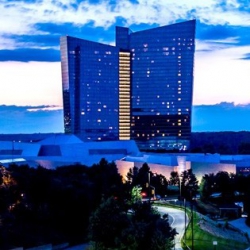
Mohegan Sun’s limousine driver is being sued for damages, but the tribe believes he should have sovereign immunity.
The U.S. Supreme Court might soon hear a case involving the nature of tribal sovereign immunity in a case involving Mohegan Sun. The court is back in session at the moment and appears ready to hear arguments in a case known as Lewis v. Clarke.
Brian and Michelle Lewis are suing a limousine drive, William Clarke, who worked as a driver for the Mohegan Tribal Gaming Authority. The couple sustained injuries in an accident caused by the Mohegan Sun’s limo driver, but the tribe is claiming sovereign immunity to avoid paying damages.
Connecticut Supreme Court Decision
The Lewis family’s case was heard before the Connecticut Supreme Court in March 2016, but the state court decided unanimously in favor of Mohegan Sun’s immunity. State legislatures and court systems tend to rule in favor of their gaming interests, so the Lewises appealed to a higher court, hoping to get a fair hearing.
Justice Dennis Eveleigh of the Connecticut high court wrote in his opinion that the justices were on firm legal ground. Citing the decision of a variety of state and federal courts, Justice Eveleigh wrote, “The doctrine of tribal immunity extends to individual tribal officials acting in their representative capacity and within the scope of their authority.”
Connecticut Ruled Unanimously for Mohegan Tribe
At the time, the Connecticut Supreme Court ruled that the William Clarke had been “acting within the scope of his employment when the accident that injured the plaintiffs occurred.”
Despite Eveleigh’s opinion, the United States Supreme Court decided to hear the case. Even hearing arguments in such an appellate cases gives the plaintiffs some hope, because the Supreme Court turns down many more cases than they see in a year.
Bay Mills Case in 2014
The last time a tribal immunity case was heard by the Supreme Court was in May 2014, when it rendered a decision involving the Bay Mills Indian Community and the State of Michigan. At the time, Michigan was suing Bay Mills. In a narrow 5-4 ruling, the US Supreme Court decided that Michigan was not allowed to sue the tribe, because it had not waived its immunity.
In the case, John G. Roberts, Anthony M. Kennedy, Sonia Sotomayor, Stephen G. Breyer, and Elena Kagan ruled in favor of the Bay Mills tribe. The four dissenting judges were Antonin Scalia, Clarence Thomas, Samuel Alito, and Ruth Bader Ginsburg.
Likely SCOTUS Decision
Justice Antonin Scalia died earlier this year, leaving the country’s highest court short one justice. President Barack Obama nominated Merrick Garland for the position, but the Republican-controlled Congress has refused to give Garland a hearing. The ninth seat has been open for over 200 days, which is the longest such vacancy in over 150 years.
If the justices split the way they did in 2014, then Mohegan Sun has nothing to fear from the case. But each case is different, so it is possible two justices change their position in the Lewis v. Clarke case.
Implications for Mohegan Sun
If a Supreme Court decision went against Mohegan Sun, the tribe could be sued for damages based on the actions of their non-tribal employees. The case would not directly involve tribal gaming, but it touches on the same sovereignty issues which allow Mohegan Sun and other tribes to operate legal casinos.
Mohegan Sun is not named in the lawsuit, but any US Supreme Court case has an impact on a nationwide scale. It was a US Supreme Court case in 1986 which first gave tribes the right to build legal casinos on reservation grounds, thus circumventing state bans on casino gambling. Any decision which affects sovereign immunity would affect the 300-plus tribal casinos operating throughout the United States.
